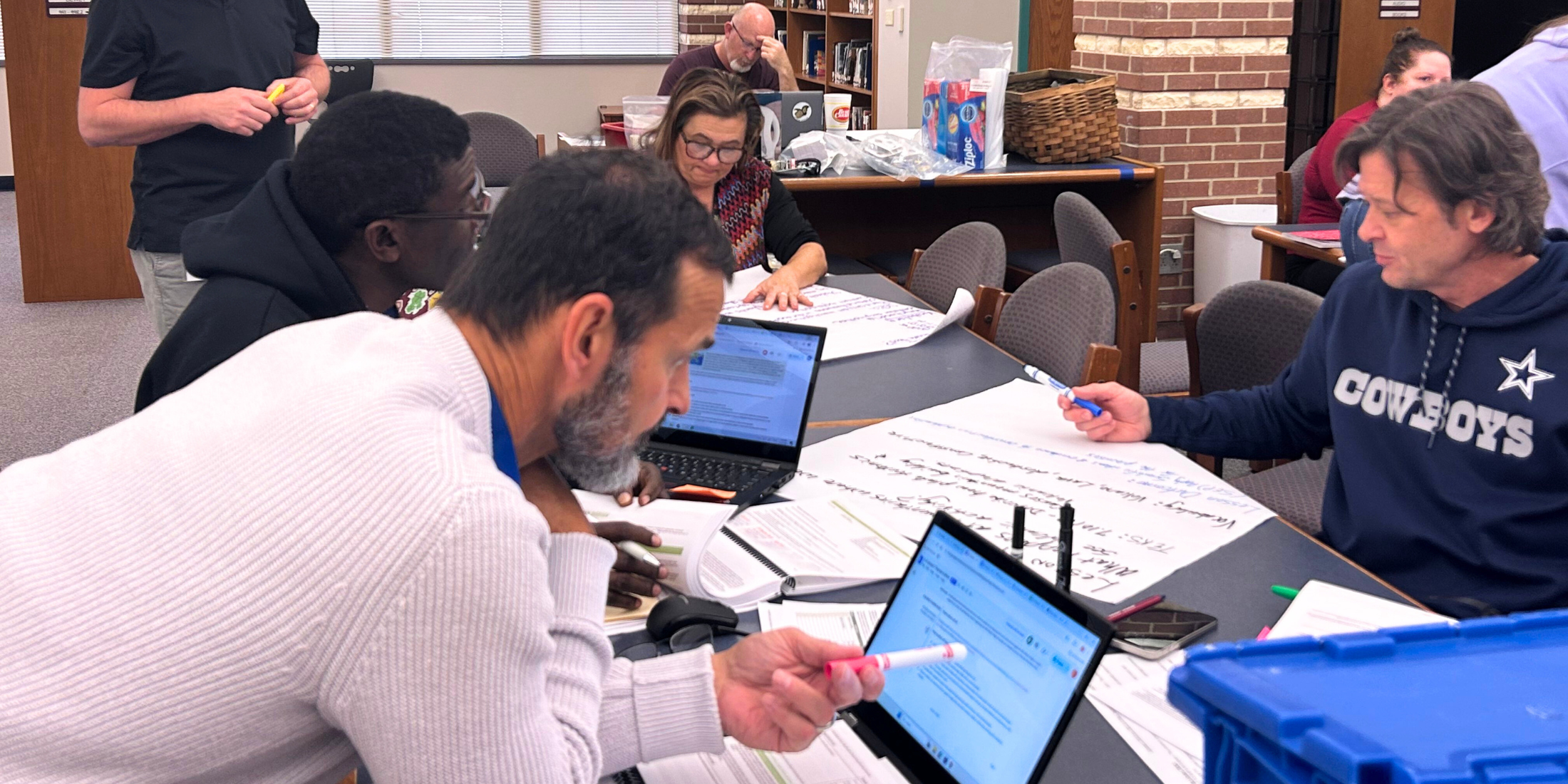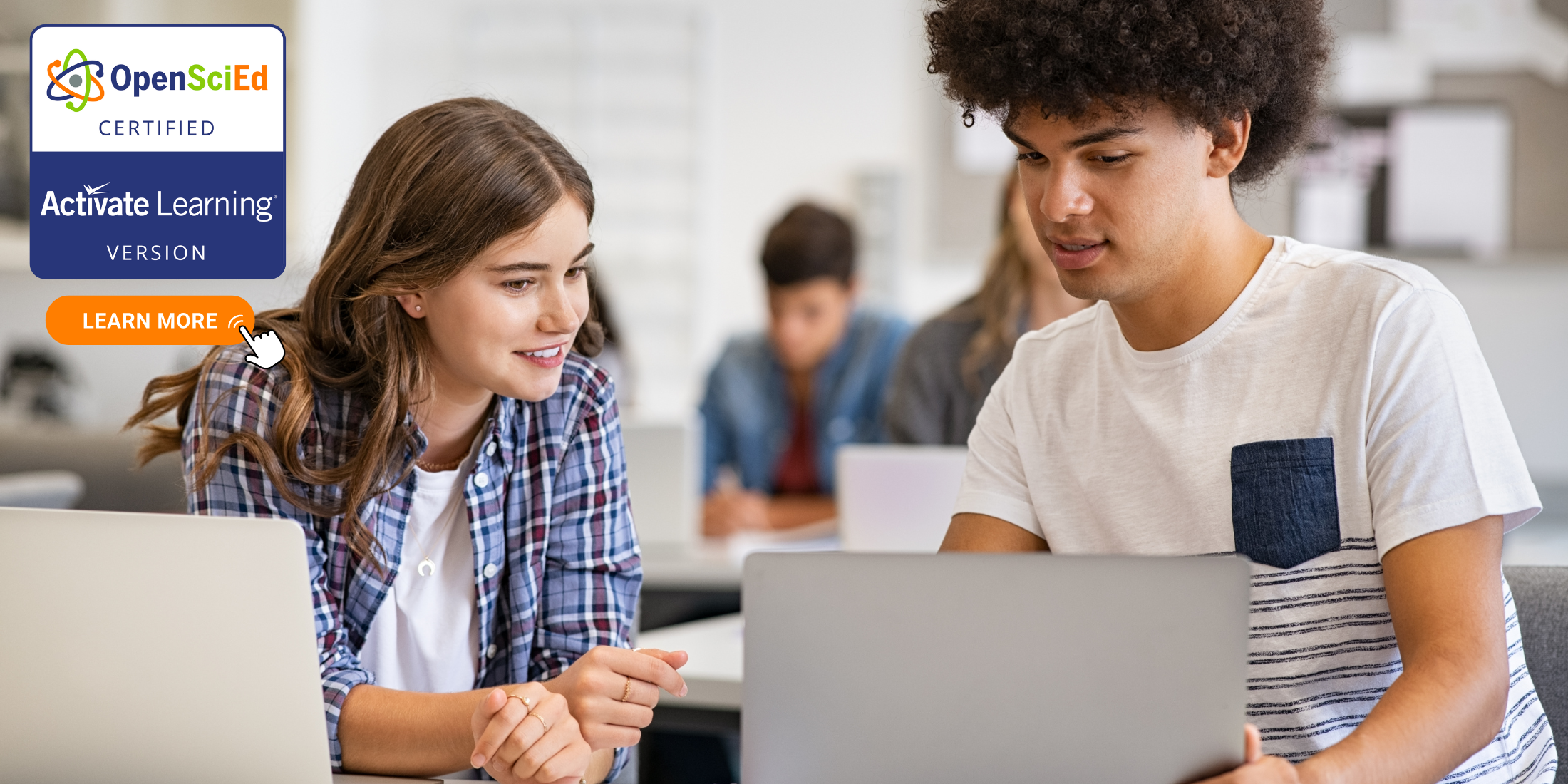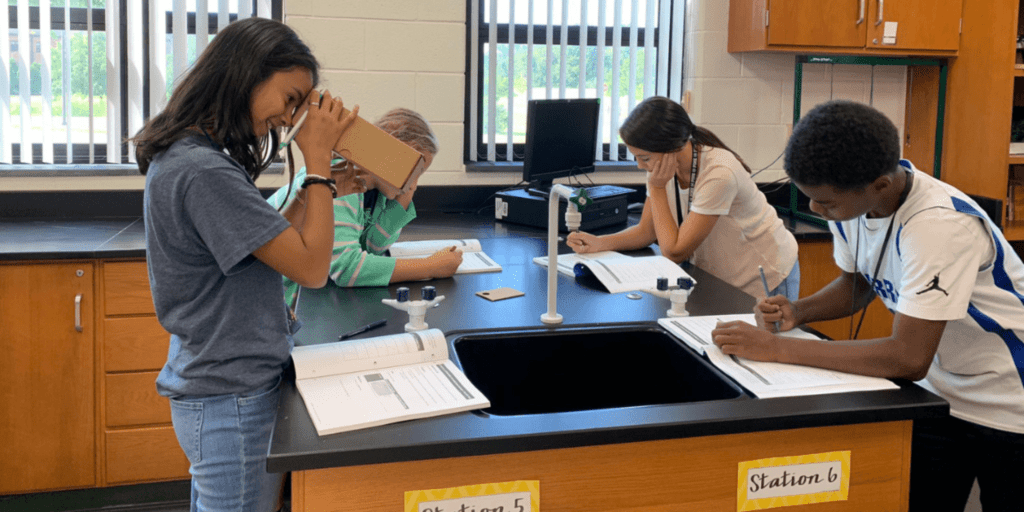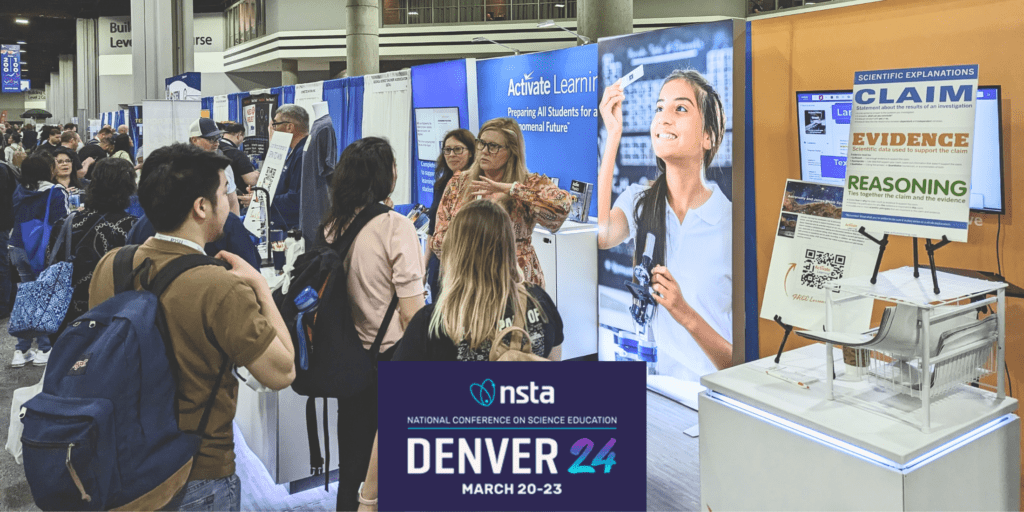Open Educational Resources Meet Generative AI: What This Means for OpenSciEd Science Teachers
Open Educational Resources Meet Generative AI: What This Means for Science Teachers

As we close out another remarkable year in STEM education, it's the perfect time to reflect on what lies ahead. With the rise of generative AI (GenAI), the pace of change is accelerating, offering both challenges and opportunities for educators.
In a blog post earlier this year, “How the Open Source Movement is Changing the Game for Science Teachers”, we explored how the open source movement is quickly transforming science education, highlighting OpenSciEd's role in bringing high-quality, accessible K-12 curriculum to classrooms everywhere.
Now, as we look ahead to 2025, there's an exciting new dimension to consider: the impact of generative AI on open educational resources (OER). This shift will redefine how we teach and learn.
A recent webinar, "Gen AI and Open Educational Resources in Teaching and Learning," hosted by the Center for Teaching, Learning and Technology at the University of British Columbia, offers fascinating insights into this convergence. If you're curious about where OER education is headed in 2025, this is worth your holiday break viewing time.
The info-packed webinar demonstrates how AI tools can help teachers adapt and enhance open source education resources in ways that were impossible just a year ago. Imagine quickly customizing content for different learning levels or generating supplementary materials that align perfectly with your classroom needs.

What's Inside the Webinar
The session unpacks several practical applications that science educators will find particularly relevant. Here’s a quick overview of what the webinar covers:
- The Basics of OER and GenAI: What makes OER a game-changer for education, and how can generative AI amplify its potential?
- Practical AI Applications for OER: See how AI tools can generate textbook chapters, quizzes, and other resources, providing a starting point for teachers to adapt and personalize.
- Ethical and Legal Considerations: Understand the complexities of copyright, data privacy, and bias in AI-generated content.
- Future Possibilities: Explore how AI might transform OER into more interactive and dialogue-driven resources, creating new opportunities for STEM classrooms.
But it's not all techno-optimism. The presenters thoughtfully address important considerations about accuracy, equity, and the ethical use of AI in education—issues that every science teacher needs to consider as we move into 2025.
Why This Matters for Science Educators
At Activate Learning, we’re proud partners of OpenSciEd, a leader in open education resources for K-12 science. As we've seen with OpenSciEd, the open education movement is all about flexibility and accessibility. Adding AI tools to this ecosystem doesn't change these core principles—it amplifies them.
For science teachers already using OpenSciEd’s NGSS-aligned curriculum, AI capabilities could open up exciting possibilities for customization and enhancement, all while maintaining the high standards and scientific rigor you rely on.
The webinar highlights the same principles that guide OpenSciEd's mission—freedom, collaboration, and adaptability. It also addresses important questions at the forefront of educators' minds about how tools like ChatGPT and Google Gemini might enhance open resources. This is an exciting moment to explore how AI can work alongside NGSS-aligned curricula to create even more impactful learning experiences.
Your Holiday Homework (The Fun Kind!)
Before you fully disconnect for the holiday break (which you absolutely should!), bookmark this webinar for inspiration as you prepare for the year ahead. It's a perfect bridge between the open education principles we explored earlier this year and the AI-enhanced teaching landscape taking shape for 2025.
At Activate Learning, we’re thrilled to support OpenSciEd educators as these new tools and opportunities emerge. While you enjoy your well-deserved holiday rest, we’ll be working hard to bring you innovative ways to leverage these technologies in your classroom next year.
Want to catch up on the fundamentals first? Check out our earlier deep dive into the open source movement in science education and explore our case studies to see how school districts are transforming science teaching with OpenSciEd.
Stay tuned—2025 is shaping up to be an exciting year for science education! 🚀
* * * * * *




